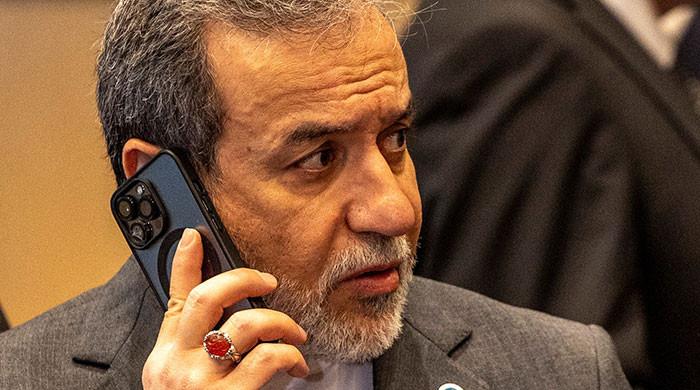- Araghchi says that rumors about talks “should not be taken seriously”.
- Iranian legislators adopt the bill suspended cooperation with IAEA.
- Khamenei accuses Trump of exaggerating damage to nuclear sites.
Iran clearly said that it did not intend to restart nuclear talks with the United States following recent American air strikes on its nuclear sites and accused Washington of having exaggerated the impact of American strikes.
The country’s Minister of Foreign Affairs rejected the rumors of future negotiations and said that no discussion or agreement had been made.
The most serious conflict to date between Israel and Iran has disrupted nuclear talks between the two countries. However, President Donald Trump said Washington would have discussions with Tehran next week, with his special envoy Steve Witkoff expressing hope “for a complete peace agreement”.
But the Iranian Minister of Foreign Affairs, Abbas Araghchi, rejected what he described as “speculation” according to which Tehran was ready to return to the table, saying that he “should not be taken seriously”.
“I would clearly say that no agreement, arrangement or conversation has been made to start new negotiations,” he said on state television. “No plan has yet been defined to start negotiations.”
Araghchi’s refusal came while Iranian legislators adopted a “binding” bill suspended cooperation with the United Nations nuclear guard dog, and after the supreme chief of Ayatollah Ali Khamenei accused Trump of exaggerating the impact of American strikes on Iranian nuclear sites.
In a televised speech – his first appearance from a cease -fire in the war with Israel – Khamenei praised what he called Iran’s “victory” over Israel, has sworn not to bow before us and insisted that Washington had been treated a humiliating “slap”.
“The American president has exaggerated events unusually, and it turned out that he needed this exaggeration,” said Khamenei, rejecting us the statements of us that the Iranian nuclear program had been behind for decades.
The strikes, he insisted, had done “nothing important” for Iran’s nuclear infrastructure. Araghchi, however, described damage as “serious” and said that a detailed assessment was underway.
Trump said the main installations, including the underground site for the enrichment of uranium, had been “erased” by American B-2 bombers.
Publishing on his social platform Truth, he rejected the speculations according to which Iran could have removed uranium enriched before the raid, declaring: “Nothing was removed … too dangerous and very heavy and difficult to move!”
He added that satellite images showing trucks on the site only indicated that Iranian crews were trying to protect the installation with concrete.
Khamenei rejected these claims, declaring: “The Islamic Republic won and, in retaliation, treated a serious slap in the face of America.”
The two parties declared the victory: Israeli Prime Minister Benjamin Netanyahu called him “historic victory”, while Khamenei said that the reprisals of the Iranian missiles had led Israel to the edge of the collapse.
US defense
In Washington, the real impact of strikes sparked strong political debates and intelligence.
A classified assessment disclosed has suggested that Iran’s nuclear program damage can be less serious than initially expected, perhaps delaying the progress of only a few months.
This contrasts with the statements of senior American officials.
CIA director John Ratcliffe said several facilities should be “rebuilt over the years”.
Pentagon chief Pete Hegseth accused the media of having distorted the operation.
He said the United States has used Massive Bunker-Bunker-Bunster bombs on Fordo and another underground site, while the Tomahawk missiles launched by submarine targeted a third installation.
“President Trump has created the conditions to put an end to war, decimate – choose your word – erase, destroy Iran’s nuclear capacities,” said Hegseth.
Doubts remain on the question of whether Iran has quietly removed some 400 kilograms (880 pounds) of uranium enriched with its most sensitive sites before strikes, potentially hiding nuclear materials elsewhere in the country.
Netanyahu says that Iran has “thwarted”
After waves of Israeli attacks on nuclear and military sites and fire missile fires since Iran since mid -June – the deadliest exchange between the two countries to date – the United States has bombed three main Iranian atomic installations.
The initial intelligence reports, revealed for the first time by CNN, indicated that strikes had not destroyed critical components and delayed the nuclear program of Iran only per month.
The experts wondered if Iran had moved preventively enriched with uranium to protect it. The American administration has strongly denied such suggestions.
The Israeli army said that Iranian nuclear sites had taken a “significant” blow, but warned that it was “even earlier” to assess the full extent of the damage.
Netanyahu said that Israel had “thwarted Iran’s nuclear project”, warning that any attempted Iran to rebuild that it would be welcomed by the same resolution and intensity.
Iran has always denied in search of a nuclear weapon and defended its “legitimate rights” on the peaceful use of atomic energy.
He also said he was willing to return to nuclear negotiations with Washington.
Israeli strikes on Iran have killed at least 627 civilians, according to the Iranian Ministry of Health. Iran’s attacks on Israel have killed 28 people, according to Israeli figures.




